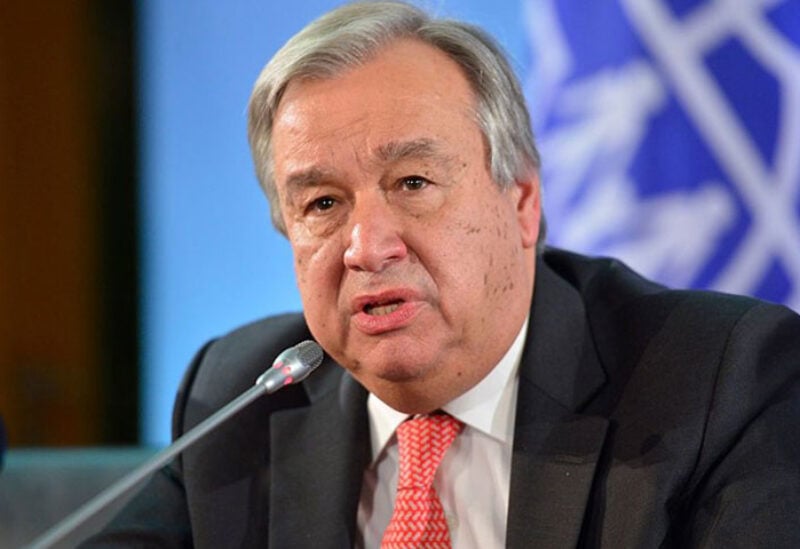
U.N. Secretary-General Antonio Guterres
Afghanistan is “hanging by a thread,” UN Secretary-General Antonio Guterres told the Security Council on Wednesday, urging countries to allow all transactions required to carry out humanitarian operations in the Taliban-ruled country.
He also advocated for the suspension of any rules or conditions that limit “lifesaving” aid operations, citing the fact that millions of people in the country are suffering from extreme hunger, education and social services are on the verge of collapsing, and a lack of liquidity limits the capacity of the United Nations and aid organizations to reach people in need.
“We need to provide financial institutions and business partners legal comfort that they may deal with humanitarian operators without risk of infringing penalties,” Guterres said, noting that the 15-member council established a humanitarian exception to U.N. sanctions tied to Afghanistan last month.
Since the Taliban took power in August, $9.5 billion in Afghan central bank funds have been frozen abroad, and foreign development assistance has dried up.
Donors to the Afghan Reconstruction Trust Fund, which is administered by the World Bank, agreed in December to send $280 million to the World Food Program and the United Nations Children’s Fund to boost nutrition and health in Afghanistan. The remaining $1.2 billion in the fund, according to Guterres, “must be freed up promptly to help Afghanistan’s people survive the winter.”
During a meeting of the United Nations Security Council on Wednesday, Russia and China lashed out at the United States for unilateral sanctions and frozen Afghan assets.
“Unilateral sanctions, in the current scenario, have the effect of freezing not just Afghanistan’s financial assets, but also the Afghan people’s aspirations for survival.” “Unilateral sanctions are no less destructive than military action,” said Zhang Jun, China’s UN envoy.
Linda Thomas-Greenfield, the United States’ ambassador to the United Nations, told the council, “Washington has tried to guarantee that US sanctions do not obstruct humanitarian activity, and it is investigating different measures to address the financial situation.”
NEED FOR CASH IN AFGHAN ECONOMY
Earlier this month, UN Aid Chief Martin Griffiths and International Committee of the Red Cross President Peter Maurer electronically met with US Secretary of State Antony Blinken on Afghanistan.
According to Dominik Stillhart, the ICRC’s director of operations, “intense” discussions between the United Nations, the ICRC, the World Bank, and key donor countries were centered on a “humanitarian exchange facility” that would be supported or managed by the World Bank and allow cash to be injected into the Afghan economy.
He told reporters that money may be put at the facility and “under certain conditions, cash might be made accessible to Afghan businessmen,” albeit he called it a transitory solution since “the central bank must be capacitated to discharge these obligations.”
“Ultimately, a healthy Afghan economy would require an autonomous and technically competent central bank that fulfills international banking norms,” Thomas-Greenfield added.
Stillhart stated that agreement between the United Nations, World Bank, and important donors was required to “kickstart this facility,” stressing that the debate was unrelated to the unfreezing of Afghan assets or modifications to sanctions against the Taliban.
He said that a different proposal was being considered, which would include utilizing money from the World Bank-managed Afghan Reconstruction Trust Fund to pay non-security public sector staff.
The UN earlier this month requested $4.4 billion in humanitarian help for Afghanistan in 2022. On Wednesday, it stated that it need an additional $3.6 billion for health and education, basic infrastructure, livelihood enhancement, and social cohesion, with a focus on the needs of women and girls.